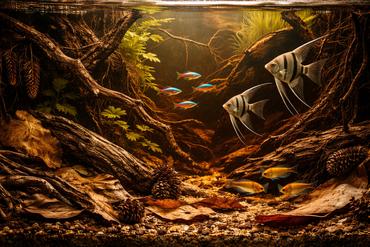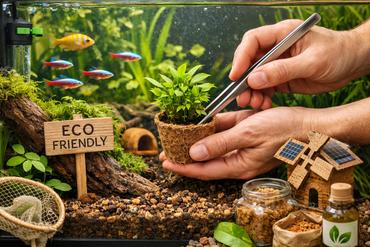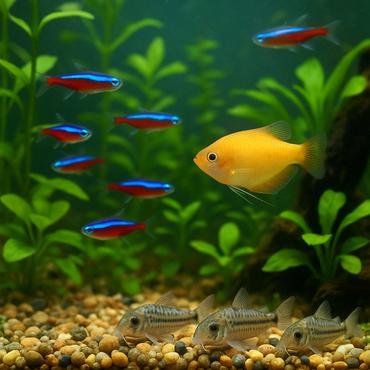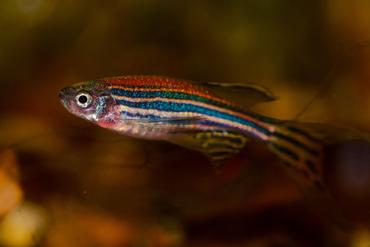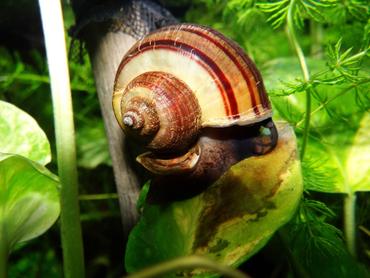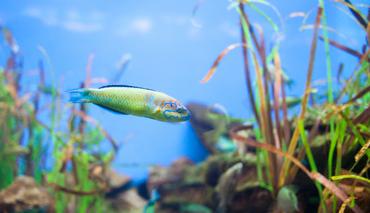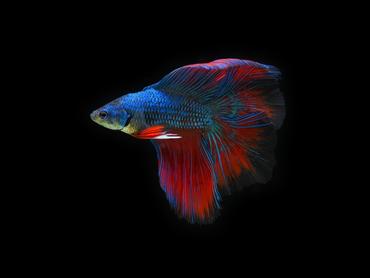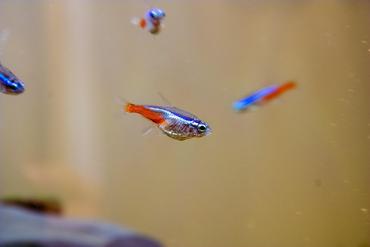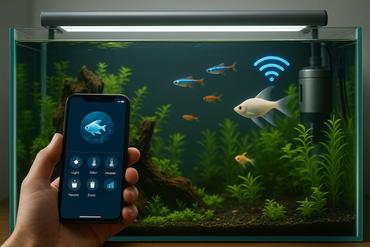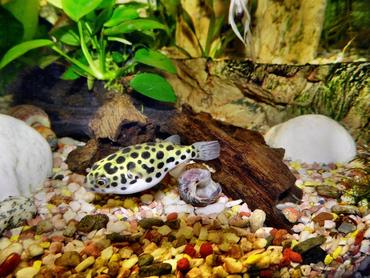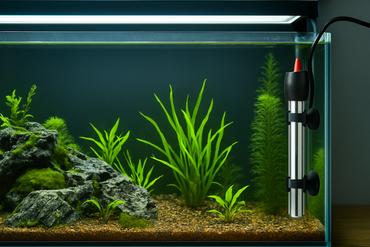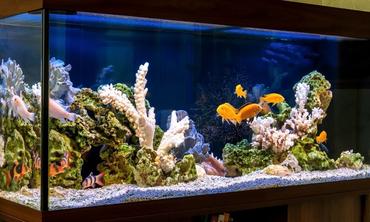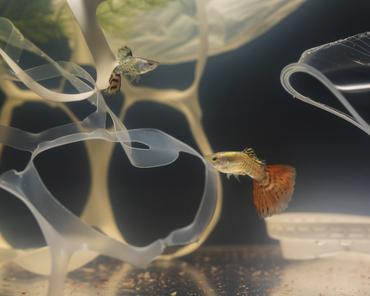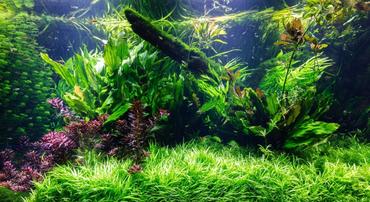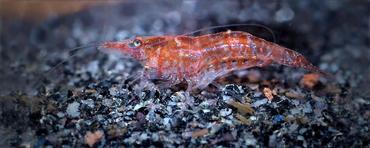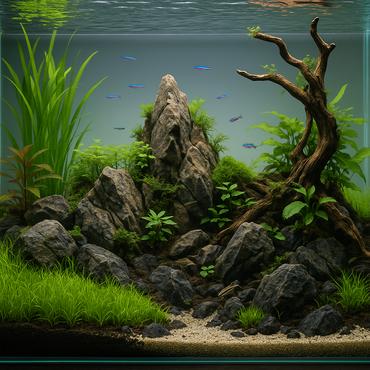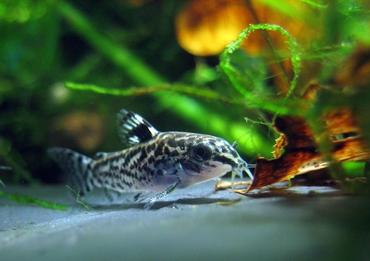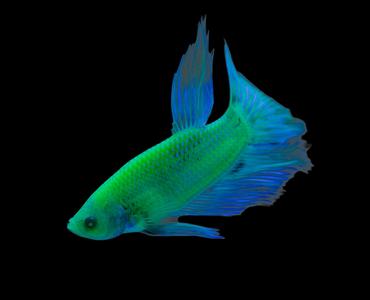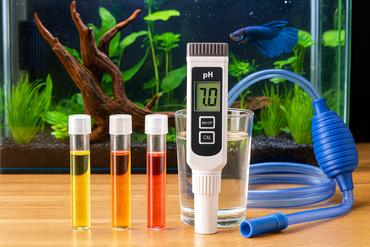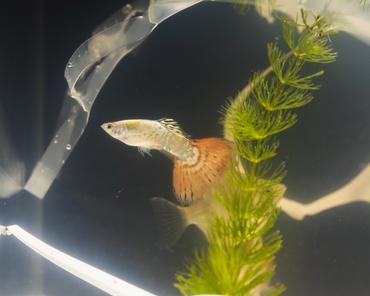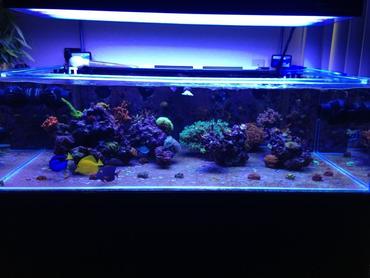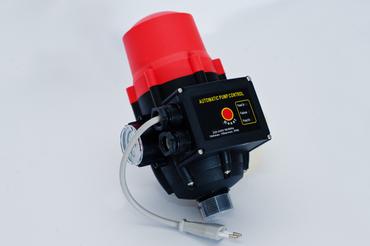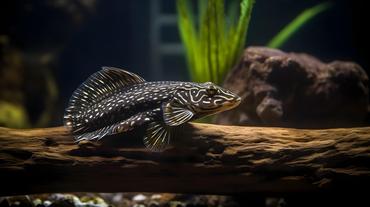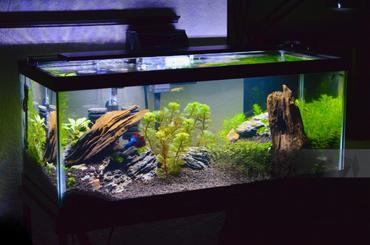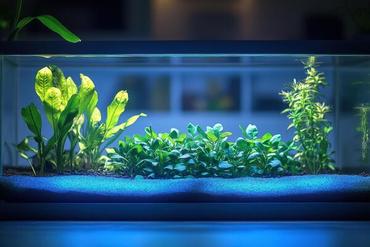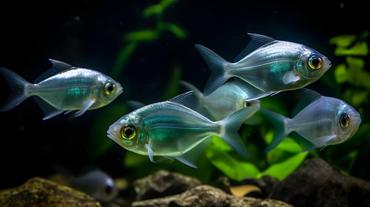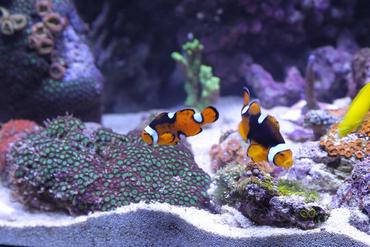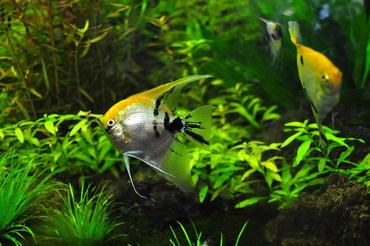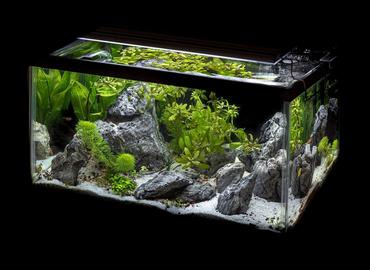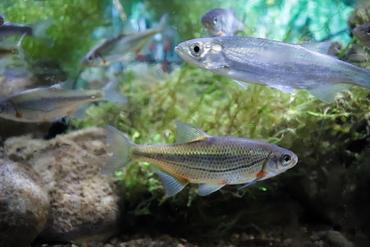HOW TO KEEP YOUR TANK SAFE DURING A POWER OUTAGE

Immediate Action: The First Hour of a Blackout
When the power goes out, the first sixty minutes are crucial for setting the stage for your tank’s survival. Your primary goal during this window is to preserve the beneficial bacteria in your filter and minimize the stress on your fish. Many beginners make the mistake of opening the lid frequently to check on their fish, but this allows precious heat to escape. Keep the lid closed tightly to trap as much ambient warmth as possible.
- Unplug your equipment: When power is restored, it often comes with a surge that can fry sensitive heaters and filter motors. Unplug everything except for one light so you know when the power returns.
- Check your filter media: If you have a hang-on-back or canister filter, the beneficial bacteria inside will begin to die once the flow stops and oxygen is depleted. If the outage looks like it will last more than an hour, remove the filter media and place it inside the tank itself. This keeps the bacteria submerged in oxygenated water.
- Stop feeding immediately: This is perhaps the most important rule. Fish can go several days without food, but they cannot survive an ammonia spike. Digestion consumes oxygen and produces waste, both of which are detrimental during a power outage.
In the first hour, you should also assess the potential duration of the outage. If it is a local grid failure due to a fallen tree, it might be resolved quickly. However, if you are in the middle of a major storm, you must prepare for the long haul. Take a baseline temperature reading immediately. Knowing exactly where your temperature started will help you track how fast the tank is cooling or heating up. For those keeping sensitive species like Discus or certain sensitive shrimp, even a two-degree drop can be the start of a physiological stress response. Early intervention is always more effective than trying to fix a crisis once the water has already turned cold.
Another common mistake in the first hour is "panic-moving" fish. Never attempt to move fish to a different container or location during a power outage unless the tank itself is leaking. The stress of being caught and moved, combined with the lack of a cycled filter in a temporary bucket, is almost always more lethal than staying put in a dark, stagnant tank. Your main priority is stability. If you have a large aquarium, the sheer volume of water provides a thermal buffer; use this to your advantage by keeping the environment as sealed and quiet as possible.
Maintaining Oxygen Levels Without Electricity
Oxygen depletion is usually the first thing that kills fish during a power outage, often long before temperature becomes an issue. In a stagnant tank, the gas exchange at the surface stops, and dissolved oxygen levels drop rapidly. This is particularly dangerous for high-oxygen demand species like Hillstream Loaches, African Cichlids, and larger goldfish. You will notice fish gasping at the surface or hanging near the top if oxygen levels are falling.
To combat this, you need to manually agitate the water. Using a clean cup or pitcher, scoop up some tank water and pour it back in from a height of several inches. This breaks the surface tension and drives oxygen into the water column. You should perform this for 5-10 minutes every hour. While this is labor-intensive, it is a life-saving measure for tanks with high bioloads. If you are looking to upgrade your setup to be more resilient, check out our guide on essential aquarium equipment for beginners to see which backup tools are worth the investment.
For a more "hands-off" approach, many hobbyists keep battery-operated air pumps on hand. These inexpensive devices run on D-cell batteries and can provide vital aeration for 24 to 48 hours. Simply attach an airline and an airstone, and the rising bubbles will create enough surface agitation to keep the gas exchange occurring. If you have a very large tank, place the airstone near the center to maximize the circulation of oxygenated water. In a pinch, if you don't have a pump, you can use a clean battery-operated kitchen whisk to gently stir the surface of the water every half hour.
It is important to understand the relationship between temperature and oxygen. Warmer water holds less dissolved oxygen than cooler water. This means that during a summer power outage, your fish are hit with a "double whammy": the water gets hotter, and the oxygen levels naturally drop even faster. If you are keeping species from fast-flowing rivers, such as various Plecos or Danios, they will be the first to show signs of distress. Always prioritize aeration for these species. If you see your fish grouped at the surface, increase your manual agitation immediately. Do not wait for the power to come back on; by the time they are gasping, they are already suffering from hypoxia.
Temperature Control: Keeping it Warm (or Cool)
Maintaining a stable temperature is the next big challenge. Tropical fish, such as Betta fish, Discus, and German Blue Rams, are highly sensitive to temperature fluctuations. A drop below 70°F (21°C) can suppress their immune systems, making them susceptible to diseases like Ich once the power returns. Conversely, during a summer outage, the lack of fans or air conditioning can cause the water to overheat, which also depletes oxygen.
- Insulate the glass: Wrap your aquarium in heavy blankets, towels, or even aluminum foil. This acts as a thermal barrier. For very small tanks, wrapping them in bubble wrap is an excellent way to prevent heat loss. Ensure the top is covered too, but leave a small gap for gas exchange if you are using an air pump.
- The hot water bottle trick: If you have a gas stove or a camping stove, you can heat water (do not boil it) and pour it into plastic bottles. Float these bottles in the tank to act as space heaters. Never pour hot water directly into the aquarium, as this can cause thermal shock and kill the fish instantly.
- Managing heat in summer: If the tank is getting too hot, float sealed bags of ice or frozen water bottles in the water. Use a battery-powered fan to blow air across the surface of the water to encourage evaporative cooling. Be careful not to drop the temperature too rapidly; a slow descent is always safer than a jagged spike.
During winter outages, the floor is often the coldest part of the room. If you have a smaller aquarium on a low stand, consider placing a rug or thick cardboard around the base to prevent the cold from seeping up. If the room temperature drops significantly, you might even consider "tenting" the entire aquarium area with plastic sheeting or a large tarp to create a smaller micro-climate that retains the tank's radiant heat. This is particularly effective for larger setups that take longer to cool down.
For those living in extreme climates, a secondary heat source like a kerosene heater or a wood-burning stove can keep the room air warm, which in turn slows the cooling of the aquarium. However, be extremely cautious with supplemental heating; ensure there is proper ventilation to prevent carbon monoxide buildup, which is dangerous for both you and your fish. If you manage to keep the room at 70°F, your tropical tank will likely stabilize around that same temperature, which is a "safe enough" zone for most hardy tropical fish for a few days.
Compatibility and Care Considerations During Stress
Not all fish react to a power outage in the same way, and understanding the specific needs of your livestock is vital. Some species are hardier than others, while some may become more aggressive when stressed. For example, Labyrinth fish like Bettas and Gouramis can breathe atmospheric air, giving them a significant advantage during an oxygen crisis. However, most community fish like Neon Tetras or Guppies rely entirely on dissolved oxygen and will be much more vulnerable.
In a community tank, keep a close eye on territorial species. When the lights go out and the "world" changes, fish like Cichlids or certain Shark species may become defensive of their space. Reduced visibility and a change in water flow can alter the social dynamics of the tank. If you notice increased aggression, you may need to use a temporary tank divider. Furthermore, if you are keeping a planted tank, remember that plants consume oxygen and release CO2 at night (or in total darkness). In a heavily planted tank, a power outage at night can lead to a much faster CO2 buildup than in a fish-only setup. For more information on balancing your ecosystem, read our article on the importance of water chemistry in planted tanks.
Compatibility also extends to the "cleanliness" of the species. High-waste producers like Goldfish or Oscars will foul the water much faster than a school of Ember Tetras. In an outage, the absence of filtration means that ammonia—the byproduct of fish waste—begins to accumulate immediately. If you have a mix of "dirty" fish and "sensitive" fish, the sensitive ones will succumb to ammonia poisoning first. This is why stopping all feeding is the most critical care step you can take. A hungry fish is a healthy fish during an emergency; a fish that has just eaten is a ticking ammonia bomb.
Consider the biological load of your tank. If you have a heavily stocked aquarium, your margin for error is much smaller. You may need to perform "emergency water changes" if the outage lasts more than 24 hours. To do this, you must have a way to heat the new water to match the tank's current (likely lowered) temperature and treat it with a dechlorinator. Using cold tap water to change the water in a cooling tank will cause the fish’s metabolism to crash. Always aim for consistency over cleanliness during the height of the crisis.
Common Mistakes and How to Avoid Them
One of the most common mistakes intermediate hobbyists make is "over-correcting" once the power returns. It is tempting to do a massive water change or crank the heater up to its maximum setting to get back to "normal." This often does more harm than good. A sudden 10-degree jump in temperature or a 75% water change with different chemistry can finish off fish that were already weakened by the outage. Instead, let the heater raise the temperature naturally over several hours.
Another pitfall is failing to clean the filter media. If the power was out for more than 4 or 5 hours, the bacteria in your filter may have died due to a lack of oxygenated water flow. If you simply turn the filter back on, you will pump a cloud of decaying organic matter and toxic gases (like hydrogen sulfide) directly into the tank. Always rinse your filter media in a bucket of dechlorinated water before restarting the system. It is also wise to monitor your ammonia and nitrite levels daily for a week following an outage. You may experience a "mini-cycle," requiring you to use a water conditioner that neutralizes ammonia. Understanding the basics of the nitrogen cycle will help you navigate this recovery period safely.
Many hobbyists also forget to check their electronic controllers. Modern LED lights, auto-feeders, and high-tech wavemakers often reset to factory settings after a power loss. You might find your lights staying on for 24 hours straight or your auto-feeder dumping a week’s worth of food into the tank at 3:00 AM. Always double-check every piece of equipment that has a digital interface as soon as the power is stable. This also applies to CO2 systems; ensure the solenoid hasn't stuck open, which could gasses your fish once the power returns.
Finally, don't ignore the "ghost" of the power outage. Even if your fish look fine the day after, the stress of the event can manifest as illness a week later. Keep a close eye on your livestock for signs of frayed fins, white spots (Ich), or lethargy. Stress reduces the protective slime coat on fish, making them an easy target for opportunistic pathogens. Keep your water quality pristine in the weeks following an event to allow their immune systems to recover fully. If you have a UV sterilizer, ensure it is running to help keep the bacterial load in the water column low while the fish are recovering.
Advanced Preparation: Building an Emergency Kit
The best time to handle a power outage is months before it happens. Every serious hobbyist should have a dedicated "Emergency Box" stored near their aquarium. This prevents panic and ensures you aren't hunting for supplies in the dark. A well-stocked kit can be the difference between a minor inconvenience and a total loss of your prize specimens. It should be easily accessible and all family members should know where it is located.
- Battery-powered aerators: Keep at least two, along with plenty of fresh batteries (D-cells are most common). Check them every six months to ensure the batteries haven't leaked and the diaphragms inside the pumps haven't dried out and cracked.
- Mylar emergency blankets: These are cheap, take up no space, and are incredibly effective at reflecting heat back into the tank. They are far more efficient than standard wool blankets for heat retention.
- Digital thermometer: Use a battery-operated one with a probe so you can monitor the temperature even when the main controller is off. Avoid the "stick-on" strips as they are notoriously inaccurate during ambient temperature shifts.
- Uninterruptible Power Supply (UPS): If you have an expensive reef tank or a delicate freshwater setup, a UPS (commonly used for computers) can run a small powerhead or air pump for several hours automatically. Do not try to run a heater on a UPS; it will drain the battery in minutes.
- Chemical oxygen tablets: These can be used in a pinch to boost oxygen levels, though they are a temporary fix and should not be a primary solution. They are great for small transport containers but less effective for large display tanks.
- Prime or AmQuel: A bottle of high-quality water conditioner that neutralizes ammonia and nitrite is essential for the 48-hour period following an outage.
If you live in an area prone to frequent or long-term outages, you may want to invest in a portable gas-powered generator or a high-capacity solar power station. These can run your entire life-support system, including heaters and filters, indefinitely as long as you have fuel or sunlight. For many with thousands of dollars invested in rare fish or corals, a $500 generator is a very cheap insurance policy. Just remember to run the generator outdoors to prevent exhaust fumes from entering the home.
Another "pro tip" for preparation is to keep several empty gallon jugs or a dedicated 5-gallon bucket filled with treated water. If the power outage is caused by a municipal water main failure or a storm that affects the local water treatment plant, your tap water might become unsafe or unavailable. Having a small reserve of "safe" water allows you to do a mini-water change or top off the tank without needing the sink. This is especially important for saltwater keepers who need to maintain specific salinity levels that can be skewed by evaporation during an outage.
Lastly, document your emergency plan. Write down the steps—unplugging gear, moving media, starting aeration—and tape it to the inside of your aquarium stand. In the middle of a blackout, your brain might not function at its best. Having a "checklist" to follow ensures that you don't forget a critical step, like cleaning the filter before restarting it. This is also helpful if you are away and a house-sitter needs to manage the crisis for you. Preparation is the bridge between a disaster and a success story.
Conclusion: Stay Calm and Be Prepared
Dealing with a power outage is an inevitable part of the aquarium hobby, but it doesn't have to result in tragedy. By focusing on the three pillars of emergency care—oxygenation, temperature stability, and waste management—you can guide your aquatic ecosystem through even the longest blackouts. The key is to act quickly but stay calm. Most fish are hardier than we give them credit for, provided the environment doesn't change too violently too fast. Whether you are keeping a simple Betta tank or a complex high-tech aquascape, the principles of survival remain the same: keep the water moving, keep the heat in, and keep the food out.
Remember that the recovery phase is just as important as the outage itself. Patience is your best friend when the lights come back on. Resist the urge to fix everything at once and instead allow the tank to stabilize at its own pace. Your fish will thank you for the gradual transition back to normalcy. We encourage you to take the time today to assemble your emergency kit and test your backup equipment. For more tips on keeping your aquarium thriving in any condition, explore our extensive library of guides and join the community discussion at RateMyFishTank.com to share your own emergency success stories and learn from fellow hobbyists. Preparation today is the life-saver of tomorrow.
MOST RECENT ARTICLES

